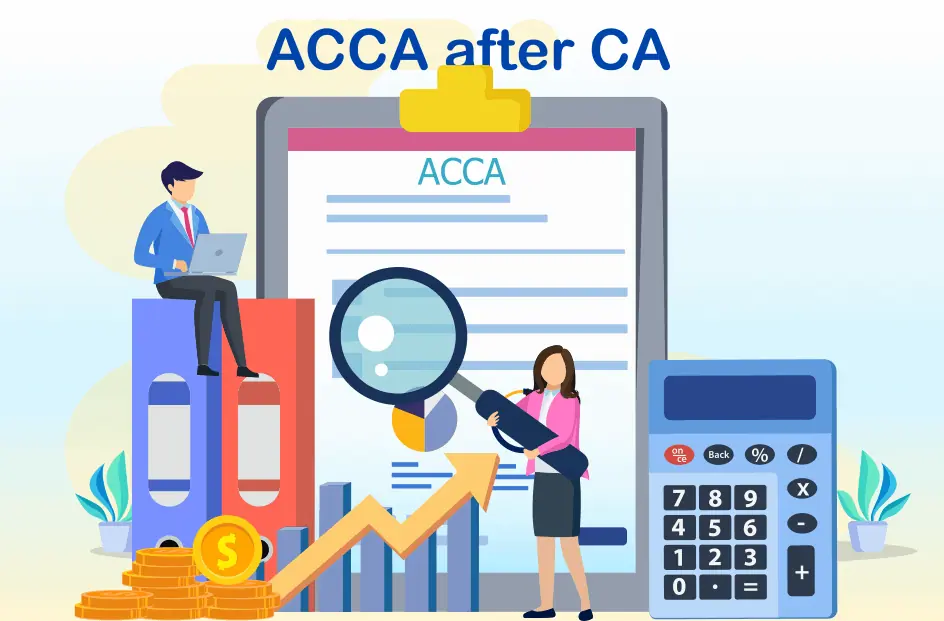The professions of chartered accountant (CA), company secretary (CS), and cost management accountant (CMA) are important to business, with each having a significantly different role. These professions regulate the economic activities of organizations or firms, meet legal requirements, maintain the company’s financial health, and plan strategically.
CA, CS, and CMA are major professional courses in the commerce stream, all offered by leading professional bodies that the Indian Parliament has approved.
Although these courses may overlap, they are different in other aspects, emphasizing distinct areas. All of them are popular among students, especially the commerce stream, but the good part is that the science and arts stream students can also pursue all three courses. All three degrees contain some crossovers and degrees of career relevance; however, each has a separate strength in business and finance.
However, one thing that is similar to CA, CS, and CMA courses is dedication. All of these programs come with apparently hard-working and highly competitive academic curricula that are expected to test, question, and stimulate learners’ brains and intelligence.
Students need to choose the course that suits their skills and passion. Before making a decision, it is important to compare the three courses.
About the CA Course
CA is an accounting course equivalent to a professional accounting, auditing, and taxation program. The approved course, offered by the Institute of Chartered Accountants of India (ICAI), is one of India’s most prestigious and competitive courses. The program is divided into three levels: Foundation, Intermediate, and Final. Students must undertake mandatory practical training of two years, referred to as Articleship. The course comprises financial reporting, tax, and corporate laws. After completing the degree, CAs can work independently in all business spheres, including finance, audit, taxation, etc.
About the CS course
CS or the Company Secretary is a professional course that deals with corporate, management, and secretarial services laws. Conducted by the Institute of Company Secretaries of India (ICSI), the program helps students become strategic management professionals in corporate governance and legal services. The course is divided into three exams: CSEET, CS Executive, and CS Professional. It includes business law, market law, economic regulation, and corporate law governance. CS professionals play an important role that we see as a necessity in the corporate world because they ensure companies align with the legal and regulatory frameworks.
About the CMA course
CMA is a professional program conducted by the Institute of Cost Accountants of India; CMA gives special importance to cost management, financial planning, and strategic decisions. The course has three levels: CMA Foundation, CMA Intermediate, and CMA Final. These courses are offered and administered by CMA. Some areas include cost accounting, financial management, and business analytics. CMAs effectively manage costs for organizations since they also involve themselves in assessing costs and other measures that affect costs. They are very much required in manufacturing industries and business, and consulting services that need professionals in cost management and financial resources.
Difference between CA, CS, and CMA Courses
The key differences between CA, CS, and CMA Courses are listed below:
|
Parameters |
CA Course |
CS Course |
CMA Course |
|
Eligibility |
|
CSEET:
CS Executive Course:
|
|
|
Duration |
4.5 years |
3 years |
3 years |
|
Syllabus |
CA Foundation:
CA Intermediate: Group I:
Group II:
CA Final: Group I:
Group II:
|
CSEET:
CS Executive Programme: Group I:
Group II:
CS Professional Programme Group I
Group II:
|
CMA Foundation:
CMA Intermediate: Group I:
Group II:
CMA Final: Group I:
Group II:
|
|
Fees |
85300 Approx. but with coaching, it can amount to INR 2,00,000 to INR 3,50,000 |
For CSEET: INR 16500 CS Executive Programme: INR 20000 |
Approx. INR 53000 |
|
Jobs |
CA’s are given the following job profiles in their career such as:
|
CS’s have the following job profiles:
|
CMA’s are given the following job profiles:
|
|
Salary |
CA will earn around 6 to 7 lakhs per annum, however; with experience and better calibre; the salary will increase. |
CS’s salary in India varies from 5 to 6 lakhs for a professional. |
The salary for CMA’s in India is normally in the range of 5-7lakhs. |
How to Become a CA
There are two paths to becoming a CA: after the 12th and after graduation.
- Upon completing 10+2, you can join the CA Foundation course of the Institute of Chartered Accountants of India (ICAI).
- After clearing the CA Foundation, enrol in the Intermediate course of the CA. Pass both groups of the CA Intermediate examination.
- After graduation, you can opt for the intermediate exam and skip the foundation level.
- Clear both groups of the CA Final examination.
- Undertake a mandatory two-year practical training or articles with a registered CA.
- Register as a chartered accountant through the ICAI, the official body for chartered accountants.
How to Become a CS
Like CA, you can pursue CS after the 12th or graduation.
- Complete your 10+2 education and clear the CSEET exam conducted by the Institute of Company Secretaries of India (ICSI).
- After clearing the CS Foundation, go for the CS Executive course. Accomplish both the modules of the CS Executive exam.
- Graduates can skip CSEET and directly opt for the CS executive course.
- Register to CS Professional and clear all the modules of the CS Professional exam.
- Undergo 21 months of practical training.
- To become a Company Secretary, one must apply for membership with ICSI.
How to Become CMA
Like CA and CS, becoming a CMA student has two paths: after 12th or graduation.
- Completing your 10+2 education, apply for the CMA Foundation course, which is conducted by the Institute of Cost Accountants of India (ICMAI)
- After clearing the CMA Foundation exam, register for the CMA Intermediate level and pass both the exam groups.
- A total of 3 years of practical training is required, of which 15 months are mandatory to apply for the CMA final exam.
- Register for the CMA Final program and Pass both groups of the CMA Final examination.
- This makes them officially affiliated with ICMAI through a membership process, which makes them a Cost and Management Accountant.
Which is better, CA, CS, or CMA?
Choosing CA, CS, and CMA depends on your career goals, interests, and strengths. To be honest, all three are the best.
CA (Chartered Accountancy): Especially suitable for those students who have an interest in accounting, auditing, taxation, and or financial management. CAs are greatly valued and can practice in auditing firms, be employed by large companies, or even set up their own practice.
CS (Company Secretary) is most appropriate for students who have a particular interest in corporate law, governance, and compliance. Managing the company board is a responsibility usually directly associated with CS professionals, who are also responsible for complying with legal or other requirements.
CMA (Cost and Management Accountancy): If you are interested in cost, control, finance, and business planning and strategy, CMA could be the ideal career for you. CMAs are specialists in matters concerning costs and are very relevant in organizations that place a lot of emphasis on cost control.
Conclusion
All three careers have strengths; CA, CS, and CMA offer different prospects. Many individuals also opt for two certifications, CA and CMA, sometimes CA and CS. There is no limitation in gaining your knowledge and expertise. One’s success is a product of strength, interest, and career choice against the right pathway. Whether you are into finance, law, or strategy, all these careers have a bright future.
We recommend checking individually for more detailed information if you like the comparison.




